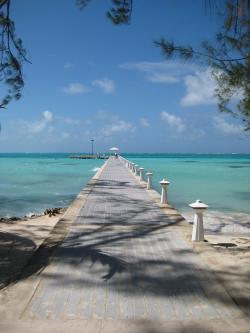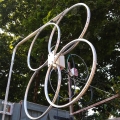jks
About
- Username
- jks
- Joined
- Visits
- 36,240
- Last Active
- Roles
- Member, Administrator, Moderator
- Points
- 639
Reactions
-
Get a URL to the KiwiSDR with the current frequency, mode, and zoom?
-
first fan died... how long do these things last- what other cooling alternatives ?
When the aluminum enclosure was being developed I specifically asked Seeed to use a ball bearing fan (i.e. sleeveless). But I'm pretty sure now they didn't given the observed failure rates. I should ask again. Note that we receive no royalty on enclosure sales in an effort to keep the cost low. It's all Seeed's deal.
Alternative fans and ideas are mentioned in these posts:
http://forum.kiwisdr.com/discussion/comment/8667#Comment_8667
http://forum.kiwisdr.com/discussion/comment/7102 -
QRSS and the Kiwi
A simplistic but useful way of thinking about this issue is this: Suppose the waterfall is slowed to draw one line every ten minutes. During those ten minutes it could be sampling at ~21 Hz (full rate) and integrating those samples so the coherent QRSS signal is gaining a huge SNR advantage over the random noise. But the waterfall doesn't do that currently. It would just sit idle for ten minutes then take one sample.
The integrate extension does a little better. It does integrate every time its waterfall output wraps around top-to-bottom. If the integration period (time to draw everything top-to-bottom) is short (e.g. 1 sec for time stations) then this is useful. But it isn't designed to work any better with long periods. So it's no good for QRSS signals.
On the wish-list for a long time is a high-resolution FFT extension. One that could for example be used to resolve the millihertz differences of AM BCB stations (a technique already used very effectively by AM BCB DX'ers). Such an extension would naturally do long-period averaging in addition to high frequency resolution. -
Whistle or tone when not tuned exactly - version v1.397 [fixed in v1.398]
Your IQ balance is almost certainly off as a result of pushing the "IQ bal" button in the IQ display extension when not tuned to a quiet part of the spectrum (or having the antenna disconnected). There is a topic explaining all this: http://forum.kiwisdr.com/discussion/699/why-a-beat-in-am-incorrect-iq-offset/p1
Easiest way to confirm this is to check the beginning messages in the log tab on the admin page. You should see numbers for the I and Q balance that are either the default (-0.02) or roughly the same. Example:Thu Jun 18 15:46:49 00:00:32.361 .... using DC_offsets: I -0.020000 Q -0.020000 -
30 min disconnection!?!?
Time remaining (if any) appears in orange in the "users" tab of the main control panel as "h:mm:ss" counting down towards zero. The suffix is "act" if the limit is on activity per connection and "24h" if the limit is per 24-hour period. The time in white preceding is how long you've been connected and counts up.





